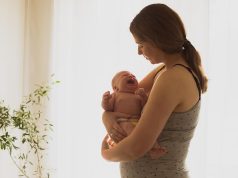Protective rearing effect found for adopted compared with home-reared full and half siblings
WEDNESDAY, April 29, 2020 (HealthDay News) — Individuals at high risk for major depression reared in adoptive homes have a significantly reduced risk for major depression compared with those raised in their home environment, according to a study published online April 28 in the American Journal of Psychiatry.
Kenneth S. Kendler, M.D., from Virginia Commonwealth University in Richmond, and colleagues identified a sample of 666 high-risk full sibships and 2,596 high-risk half sibships containing at least one home-reared and one adopted-away sibling to clarify the role of rearing environment in the etiology of major depression.
The researchers found that the risk for major depression was reduced by 23 and 19 percent in the matched adopted compared with home-reared full and half siblings, respectively, after controlling for sex, parental age at birth, and for half siblings, history of major depression in the nonshared parent. The relative educational status of the biological and adoptive parents did not influence the protective rearing effect. When an adoptive parent or stepsibling had major depression or the adoptive home was disrupted by parental death or divorce, the protective effect of adoption disappeared in both full and half sibships.
“Our results further strengthen the evidence that high-quality rearing environments can meaningfully reduce rates of major depression in individuals at high familial risk,” the authors write. “This finding supports efforts to improve the rearing environment in high-risk families as an approach to the primary prevention of major depression.”
Copyright © 2020 HealthDay. All rights reserved.








